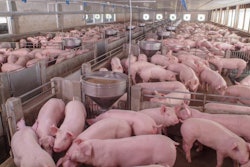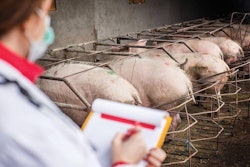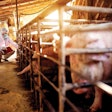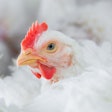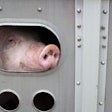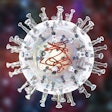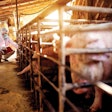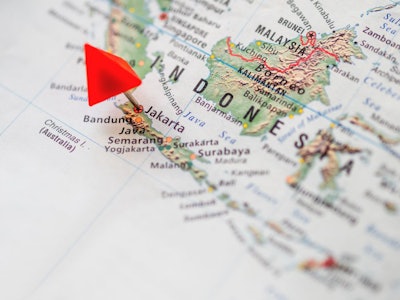
Presence of African swine fever has been officially confirmed in Indonesia, and there have been more cases in wild boar in South Korea and China.
Details are emerging of the African swine fever (ASF) situation in Indonesia. Indonesia is the 12th country in Asia (including Russia’s Far East region) to have confirmed outbreaks of the disease during 2019.
ASF first occurred in the country in early September, according to a new report from the Indonesian agriculture ministry to the World Organisation for Animal Health (OIE). Since that time, more than 28,000 pigs have died of the disease. Almost 1.23 million pigs in 392 backyard herds are estimated to be in the affected area.
Based on the official report, ASF has been confined to North Sumatra, a province located in the north of the most westerly island in the Indonesian archipelago. The infection was first confirmed in Dairi, and has since spread to 16 of the 33 districts in the province. Original source of infection remains unknown. The ministry states that live pig transportation and fomites “played a role” in its further transmission.
One month ago, news agency Antara reported that the agriculture ministry had introduced a ban on the transportation of live pigs in North Sumatra. At that time, 5,800 pigs had died in 11 districts. In the report, cause of the mortality and disease was identified as “hog cholera” (classical swine fever). However, the official OIE report refers to ASF, and this disease was diagnosed by local veterinarians.
The next week, the death toll had risen to more than 9,400 pigs, according to The Jakarta Post. The provincial governor expressed the hope that a vaccine would be shipped to the area. He also called on pig farmers to dispose of infected pig carcasses correctly, and not continue to dump them “carelessly.”
Despite assurances that ASF does not affect humans, local pork sellers are reporting dramatic reductions in sales.
South Korea raises funding to control ASF
This week, the National Assembly approved a 20% increase in the annual budget to tackle animal diseases, reports Yonhap. Driven by the need to control ASF, the total budget for 2020 will be around KRW371 billion (US$318 million).
On December 16, the number of wild boar infected with the ASF virus stood at 46. A total of 14 pig farms have also been affected, according to Yonhap. The most recent outbreak in domestic pigs was in October. The cull of domestic pigs has reached almost 400,000.
Over the period December 10-13, four more wild boar were found to be infected with the ASF virus in South Korea. These details were in the latest reports from the agriculture ministry to the OIE. Three of the animals were found dead, and the other — a sow — was culled.
As in almost all previous cases, these wild boar were in the forest area in the north of the country, near to the border with North Korea. Three were in the Yeoncheon district of Gyeonggi province, and the other was in the Cheorwan district of Gangwon.
Offering grounds for optimism in the development of the world’s first vaccine against ASF, researchers in the U.S. appear to have made a significant breakthrough.
ASF returns to Shaanxi, China
Nine wild boar in the central province of Shaanxi have tested positive for the ASF virus. They were found at the end of November, according to the Chinese agriculture ministry’s latest report to the OIE.
View our continuing coverage of the African swine fever outbreak.

